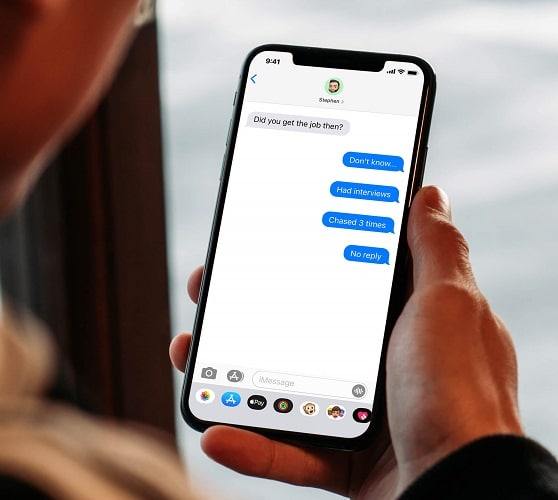Ghosting – a behaviour usually associated with dodgy dating app etiquette – is now rife in recruitment, according to a new study.
The practice is affecting candidate mental health and the reputation of companies, with 94 per cent of job applicants citing that the experience left them with negative feelings towards the brands in question.
Two-thirds of us have been ghosted by a recruiter according to recruitment software company Tribepad who found three in four men were affected and three in five women, with Londoners most affected.
The impact on mental health is significant, according to the report. Nearly in ten respondents said the experience has left them down or depressed in some way, and 17 per cent went as far as to say they had been left severely depressed.

Lise Campbell Price, 50, an events and project manager from London described an all-too typical scenario. “Last year, I applied for a role at a global leader in online retail after a senior employee at the company headhunted me on LinkedIn and asked me to have a call,” she said.
“He said I was ideal for the role. During the two-week gap before my interview, I studied every day, under their recommendation. After a two-day interview – which included back-to-back interviews, tasks, drafting competencies and being tested on the company’s values, they said they’d be back in touch by the end of the week. I never heard from them, despite following up four times. The person who had headhunted me disappeared and is no longer a connection on my Linkedin. I also contacted him by email and was ignored.
“I had put in so much time and effort, when I heard nothing back, I got in such a state with it all. What is wrong with me? Did I say something incredibly thick? Will I ever work again?
The problem in numbers
- 65% of UK adults have been ghosted part way through the recruitment process
- 94% of ghosted candidates retain negative feelings towards that company
- 86% ghosted candidates left them feeling down about themselves
- 17% of people were left feeling severely depressed
“It triggered a trail of thoughts that made me question everything. It’s not good for people to be treated like this. The only positive is that now I am researching how to set up my own ethical recruitment company, where this would never happen.”
Dean Sadler, CEO of Tribepad said: “The whole planet has been upended in the past 18 months and it’s inevitable that the impact of that is far-reaching. The HR and recruitment industry is under intense pressure with the job market contracting and expanding at an incredible pace.
“Nonetheless, the practice of ghosting applicants, at potentially one of the most stressful times of their lives, is having a significant negative impact on the individual, and how brands are viewed.
“We are calling for brands to pledge to acknowledge and address the problem, because it’s the right thing to do, and because doing so will safeguard their reputation and their future at the same time.
“More than four in 10 applicants who have been ghosted say it took them weeks or even months to recover, with 12 per cent of men saying it took them several months to get their confidence back.
A handful of companies have now comer together to sign a pledge to end ghosting in recruitment. So far these include Colas Ltd, British Medical Association, Southeastern Railways and Entain plc, the brand behind Ladbrokes.
Candidates that have been ghosted are also invited to share their stories about their experiences to raise awareness.
Related
Changing jobs – you can onboard from home
Shifting stereotypes with a new approach to recruitment
HMRC phishing scams go through the roof
A new approach to recruitment
How to improve your recruitment efforts


